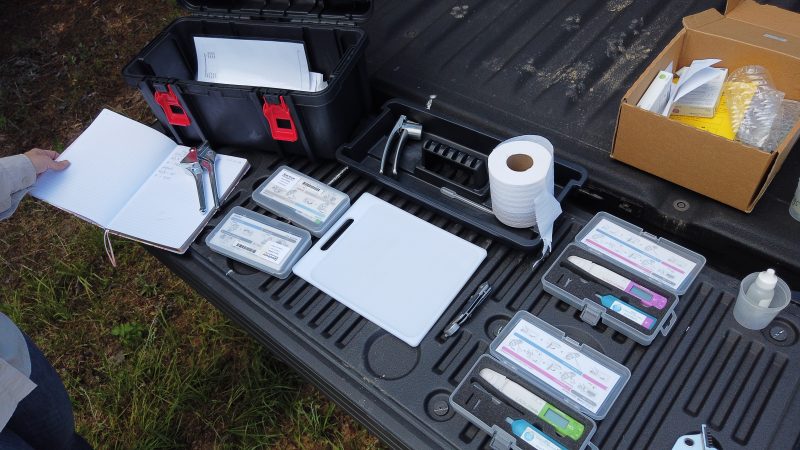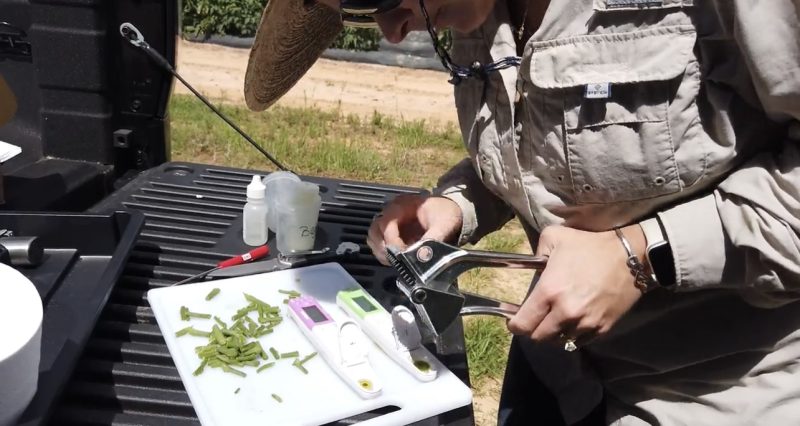Best Management Practices (BMPs) for water quality enhancement and conservation are essential to the long-term sustainability of agriculture and natural resources in Northwest Florida. BMPs allow producers to gain knowledge and understand how to decrease their impact on natural resources through nutrient, water, and pesticide management. With 6,761 acres in production for vegetable crops between Jackson and Gadsden County (USDA 2022 Census of Agriculture) and both counties being in a Basin Management Action Plan (BMAP), it is essential for producers to precisely manage their crop fertility. Producers can improve their fertilization efficiency through services such as plant petiole sap-testing.
–
Petiole sap-testing can be performed with a “quick kit” test that measures current potassium and nitrate levels in various vegetables, such as peppers, tomatoes, and melon crops. Nitrogen and potassium are two main nutrients applied via fertigation, making them the best nutrients to test for. By evaluating your nutrient levels weekly, accurate fertilizer rates will be applied to the crop, saving resources such as water, fertilizer, and time. Petiole-sap testing can be utilized not only for nutrient management purposes but can also be a key step when performing plant disease diagnostics.
How does this service work? Petiole leaf stems are collected from the Most Recently Matured Leaf (MRML) from crop plants throughout the field. Petioles are collected in the same fashion as collecting soil for soil testing where samples are collected randomly within a field. The petioles are then cut into smaller pieces and “juiced” through a garlic press. The sap from the petiole stems is then inserted into the sensor of the desired meter (N or K) and the meter displays the results. For the most accurate results, sampling should be conducted on the same day of the week at the same time of day for however long the service is required. Once a week between 9:00 am and 11:00 am is best for the most accurate results.
–
While tissue sampling at key stages of the season is still recommended, there could be potential cost and time savings by utilizing petiole sap testing services. Submitting tissue samples to various agronomic labs in the southeast can cost upwards for $20-$30 per sample and typically have a 5–7-day turnaround for sample results. UF/IFAS Extension Agriculture Agents offer this testing service for free and potentially within the same day, therefore saving growers’ time and money. The following video provides a demonstration of extension agents utilizing this service in a tomato field in Gadsden County.
–
Growers interested in petiole sap-testing and more information about this service should contact the local county extension office. For more information on this subject, including a chart with guidelines for plant leaf petiole fresh sap nitrate-nitrogen and potassium-testing of commonly grown vegetables, please use the following publication link:
Plant Petiole Sap-Testing for Vegetable Crops
- Nutrient Management for Vegetable Growers in the Florida Panhandle - April 4, 2025
- 2025 Tri-State Fruit & Vegetable Conference Highlights & Presentation Links - January 31, 2025
- Save the Date: 2025 Tri-State Fruit & Vegetable Conference- January 28 - November 22, 2024


